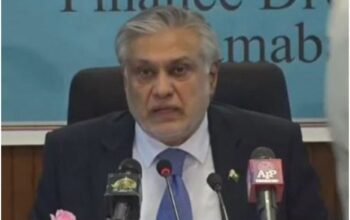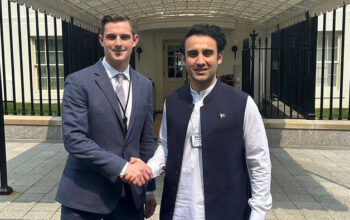By Staff Reporter
ISLAMABAD: Pakistan’s consumer confidence has surged to its highest level in six years, according to the Ipsos Consumer Confidence Survey for the second quarter of 2025, released on Sunday.
Finance Minister Muhammad Aurangzeb praised the results as a clear endorsement of the government’s economic strategy over the past 14 months, which he said has steadied the nation’s financial footing and lifted public sentiment.
The survey, conducted by Ipsos, a global market research firm known for tracking consumer behaviour and public opinion across 89 countries through online polls, interviews, and focus groups, found that 42% of Pakistanis now believe the country is heading in the right direction. That’s the highest share since 2019, signalling a sharp turnaround in how citizens view the economy.
Perceptions of economic strength also hit their most favourable mark since August 2019, with optimism outpacing pessimism for the first time since Ipsos began monitoring consumer confidence in Pakistan.
Aurangzeb called the findings “a strong affirmation of the improving economic outlook and public sentiment across Pakistan.” The minister credited the government’s “disciplined and targeted macroeconomic strategy” for the shift, pointing to progress in taming inflation, bolstering the exchange rate, rebuilding foreign exchange reserves, and sharpening fiscal discipline. “The stabilisation of key economic indicators has created a foundation for renewed public trust and economic recovery,” Aurangzeb quoted as saying in a press release issued by the Ministry of Finance.
The survey also showed tangible gains in household confidence. The share of Pakistanis feeling secure enough to make major purchases or investments has doubled since the same period last year, while confidence in job security reached its highest level since 2019.
The minister tied these improvements to labour market stabilisation and pro-growth policies that have begun to take root.
The upswing isn’t limited to cities, and it cuts across urban and rural areas, with youth and women showing particular optimism.
The finance minister linked this broad-based confidence to government efforts to spur private sector activity, lift exports, expand social safety nets, and widen financial access. “This data reflects the success of our approach and shows that the benefits of our policies are reaching all segments of society,” he said.
Aurangzeb’s comments build on remarks he made in April at a conference, where he flagged a turning point in Pakistan’s economic recovery. He cited a string of wins: inflation slashed to a 60-year low of 0.7%, foreign exchange reserves doubled, a 3% appreciation in the currency, and a current account surplus topping $1 billion in March.
The country also saw foreign direct investment jump 44%, IT exports climb 24%, and remittances hit a projected $38 billion. On the fiscal front, Pakistan posted a surplus for the first time in 24 years and logged its largest primary surplus in two decades.
The finance minister said the government would maintain the momentum going. “The findings of the Ipsos survey are a timely validation of Pakistan’s economic direction and a clear signal that the country is on a steady path toward recovery and resilience,” Aurangzeb said. He stressed that maintaining macroeconomic stability, pushing structural reforms, and ensuring inclusive growth remain top priorities.
Copyright © 2021 Independent Pakistan | All rights reserved




